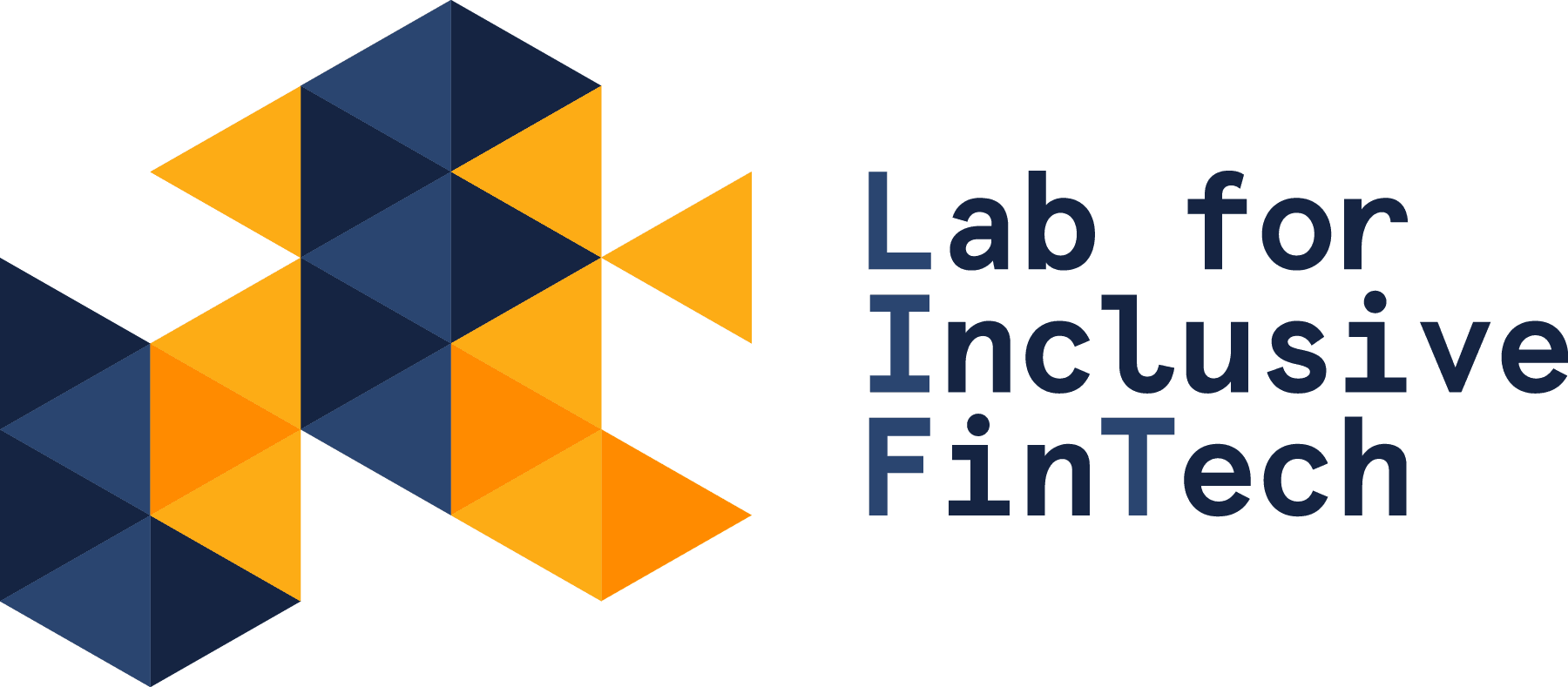
Opening Panel: The Promise of Fintech and the Path to Financial Inclusion

Laura Chioda
Director of Research, University of California, Berkeley
Laura Chioda is the Director of Research for the Lab for Inclusive Fintech (LIFT) and the Institute for Business and Social Impact (IBSI), at the University of California, Berkeley. In collaboration with UC Berkeley faculty, she is responsible for formulating and developing research agendas for IBSI/LIFT’s strategic priorities, which include fintech and banking, sustainability, mental health, and diversity and inclusion. Laura holds a PhD in economics from UC Berkeley and was an assistant professor of economics at Princeton. Her research interests range from theoretical econometric issues of identification and machine learning to behavioral economics, youth and skill development, intra-household decisions and social networks. She also serves as principal investigator on several fintech and digital inclusion studies. Her work has been featured in the Financial Times, the Wall Street Journal, the Economist, and other international press.
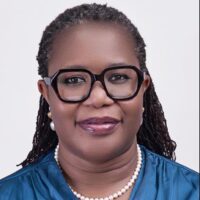
Olayinka David-West
Associate Dean & Professor of Information Systems, Lagos Business School
Professor Olayinka David-West is an accomplished academic and Associate Dean at the Lagos Business School. With expertise in business management and technology, she has had a distinguished career spanning academia, research, and leadership roles in IT and financial services. As a faculty member and academic director at LBS, she played a key role in achieving international accreditations and global rankings for the school. Professor David-West is a fervent advocate for digital transformation and inclusive finance. Her research focuses on the impact of technology on business models, strategy, organisational dynamics, and policy interventions for digitally transformed businesses and society. She is known for her numerous publications, conference contributions, and thought leadership in inclusive finance, digital transformation, innovation adoption, and technology-driven disruption.
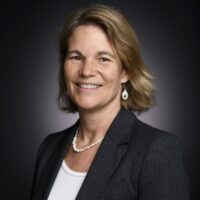
Sophie Sirtaine
Chief Executive Officer, CGAP
Sophie is the CEO of CGAP, an international partnership, housed in the World Bank Group, dedicated to promoting inclusive financial ecosystems that enable a green, resilient, and equitable world for all. Sophie has dedicated her professional career to the development of inclusive and sustainable financial ecosystems around the world, with more than twenty years of experience at the World Bank. Among others, she led various Financial Sector Assessment Programs (FSAPs) in various countries in Europe, Central Asia, and Latin America, and she was the Manager who led the World Bank’s response to banking crises in various countries of the European Union during the global financial crisis of 2008-2011. Prior to joining the World Bank, Sophie worked in JP Morgan’s Financial Institutions (FIG) team on Mergers and Acquisitions (M&A) in Europe, and for Halcrow Fox and Associates’ Infrastructure team. Sophie holds a Masters in Economics from the London School of Economics (LSE).

Edom Tsegaye
Senior Program Officer, Bill and Melinda Gates Foundation
Edom Tsegaye is a Senior Program Officer on the Financial Services for the Poor initiative at the Bill & Melinda Gates Foundation. She leads the teams’ engagement in Ethiopia and serves on the board of FSD Ethiopia. During her tenure at the Gates Foundation, she secured approval from the executive leadership team to make Ethiopia a focus country. She has since built the country’s portfolio from scratch and oversees national initiatives including deploying an inclusive payment platform and building a Digital ID. Prior to joining the foundation, she worked as a consultant at the International Finance Corporation(IFC) on various digital financial services projects across Sub-Saharan Africa. Furthermore, she worked on several Public Private Partnership projects while working at Kifiya Financial Technology in Ethiopia. In addition, she had a stint working at Morgan Stanley as Derivates Analyst. Edom holds a BA in Finance from Manhattanville College & a Master in Public Policy from Harvard.
Policy panel: Fintech, Big Tech, and Financial Services: a Policy Agenda

Adel Meer
Global Sector Manager – Financial Inclusion, International Finance Corporation
Adel joined IFC in 1999, in the Capital Markets unit working on investment projects in Europe, Middle East North Africa, Asia and the Pacific in the Financial Markets sector. In 2005, Adel moved to Bogota, Colombia and took responsibility for managing the Financial Markets business for IFC in the Andes and the Caribbean. In 2009, Adel moved to Vietnam to help expand the IFC’s footprint in the Mekong. In 2012, Adel assumed the role of Regional Representative for Thailand and Myanmar and thereafter in 2014 was appointed as IFC’s Manager for FIG for the East Asia and Pacific region. In 2017, Adel returned to DC and led the SME finance team where he created a number of global platforms using blended finance support. In December 2022, Adel was appointed as Global Sector Manager for Financial Inclusion. His responsibilities include overseeing IFC’s activities with credit infrastructure MSME finance, digital financial services, embedded finance platforms and innovation.
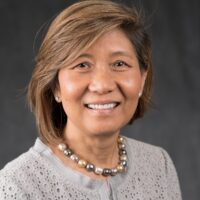
Julapa Jagtiani
Senior Economic Advisor and Economist, FRB Philadelphia
Julapa is Senior Economic Advisor and Economist at the FRB Philadelphia, a Central Bank Research Fellow at the BIS, and a Fellow member of the Wharton Financial Institutions Center. At the Fed, Julapa has led several supervisory policy initiatives, including Basel qualification, CCAR stress testing, and more recently fintech supervision program. Julapa has published influential research articles in the Journal of Financial Economics; Journal of Money, Credit, and Banking; Journal of Banking and Finance; Financial Management, etc. Julapa also leads the efforts at the Philly Fed in organizing the Annual Fintech Conferences to bring together world renowned experts to discuss fintech innovations, blockchain; cloud computing; fintech partnerships; cryptocurrencies; real-time payments; BNPL; CBDC; DeFi; quantum computing; and potential policy solutions. Julapa has a PhD in Finance and an MBA from NYU Stern School of Business, where she held the Rockefeller Foundation Fellowship.

Linda Jeng
CEO / Visiting Scholar on Financial Technology, Digital Self Labs / Georgetown Law
Linda Jeng is the CEO and Co-founder of Digital Self Labs, a tech & policy advisory firm. She’s also the Head of Global Web3 Strategy and was the Chief Regulatory Officer and General Counsel for the Crypto Council for Innovation, a global alliance of leading blockchain companies. In addition, she is the Visiting Scholar on Financial Technology at Georgetown University Law Center’s Institute for International Economic Law and is a Senior Lecturing Fellow at Duke Law School. Prior to these roles, she was the Chief Policy & Regulatory Officer for the Centre Consortium (the standards organization for the stablecoin USDC and the digital identity standard Verite) and was the Global Head of Policy at the DeFi payments startup Transparent Financial Systems. Before entering the crypto ecosystem, she worked for 15 years in financial regulation at the Fed, the Financial Stability Board, US Treasury, US Senate, the SEC and the OCC.
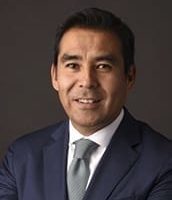
Eric Parrado
Chief Economist & General Manager of Research, IADB
Eric Parrado is the Chief Economist and General Manager of the Research Department of the Inter-American Development Bank (IDB) since March 2019. Before joining the IDB, he was a professor of economics and finance at the ESE Business School of the Universidad de los Andes in Santiago, Chile. Mr. Parrado is a visiting professor at Oxford University and ETH Zurich and co-chair of the World Economic Forum’s Global Future Council on Economics of Equitable Transition. From 2014 to 2018 he was the Superintendent of Banks and Financial Institutions in Chile, where he promoted reforms such as the modernization of banking legislation and the creation of new instruments for financial inclusion. Mr. Parrado has a degree in commercial engineering from the University of Chile and holds a master’s and a PhD in economics from New York University.
Session: Fintech: Vulnerable Populations and Consumer Protection
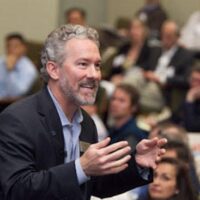
Rich Lyons
Vice Chancellor and Chief Innovation & Entrepreneurship Officer Office of the Vice Chancellor for Research, UC Berkeley
Rich Lyons serves as the chief innovation and entrepreneurship officer for UC Berkeley. He served as dean of Berkeley’s Haas School of Business (2008 to 2018) and currently holds the William and Janet Cronk Chair in Innovative Leadership. From 2006 to 2008 he oversaw Goldman Sachs University as chief learning officer. He received his BS with highest honors from UC Berkeley (business) and PhD from MIT (economics). Before (re)joining Berkeley, Rich was for six years on the business faculty at Columbia University. His research and teaching expertise is in international economics and finance and his top applied interest is the “how and why” of setting strong institutional cultures.
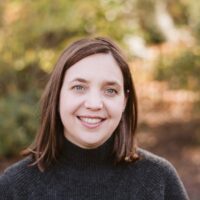
Emily Breza
Frederic E. Abbe Professor of Economics, Harvard University
Emily Breza is the Frederic E. Abbe Professor of Economics at Harvard University. Her research focuses on financial markets, labor markets, and social networks in developing countries. She received her PhD in Economics from MIT and her BA from Yale University. Prior to joining Harvard, Emily held a faculty appointment at Columbia Business School. She is the chair of the Finance Sector at the Jameel Poverty Action Lab (J-PAL) and is a co-leader of the Finance and Entrepreneurship theme for the Private Enterprise Development in Low Income Countries (PEDL) initiative. Emily is a faculty affiliate of NBER, IGC, BREAD, CEPR and Y-RISE and a recipient of a Sloan Research Fellowship and an NSF CAREER grant.
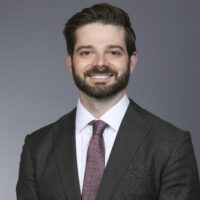
Sean Higgins
Assistant Professor of Finance, Northwestern University
Sean Higgins is an Assistant Professor of Finance at the Kellogg School of Management at Northwestern University. His research studies how technology reduces frictions in payments markets and consumer financial markets, and the effects of reducing these frictions on households and small firms in emerging economies. He holds a PhD in Economics, and prior to joining Kellogg, he was a Post-Doctoral Fellow at the Haas School of Business at the University of California, Berkeley.
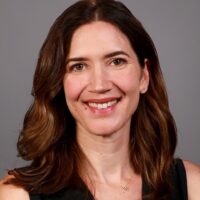
Simone Schaner
Associate Professor (Research) of Economics, University of Southern California
Simone Schaner is an Associate Professor (Research) of Economics at the University of Southern California. She studies how the social and economic environment shapes individual and household choices, elucidating how beliefs and power affect the decision-making process. Her work explores economic mechanisms that contribute to inefficiency and misallocation in low-income settings, with a focus on labor, financial, and healthcare markets. Dr. Schaner is the Scientific Director for Gender at Inclusion Economics. She is also an affiliate of the Bureau for Research and Economic Analysis of Development, the Abdul Latif Jameel Poverty Action Lab, the Center for Effective Global Action, and a Faculty Research Fellow at the National Bureau of Economic Research. She has a Ph.D. in economics from the Massachusetts Institute of Technology and an A.B. in economics from Princeton University.

Paul Gertler
Professor | Li Ka Shing Professor of Economics | Professor, School of Public Health | Faculty Director, Institute for Business & Social Impact | Scientific Director, Center for Effective Global Action
Paul Gertler is the Faculty Director of the Institute for Business & Social Impact, and he is also the Scientific Director of the Center for Effective Global Action. He’s an expert on impact evaluation, acting as principal investigator on large, multisite evaluations of programs to fight poverty and improve healthcare in Mexico, Rwanda, and around the world. He also served as the chief economist of the Human Development Network of the World Bank from 2004 to 2007. He has been a member of the Haas faculty since 1996, and holds a PhD in economics from the University of Wisconsin.